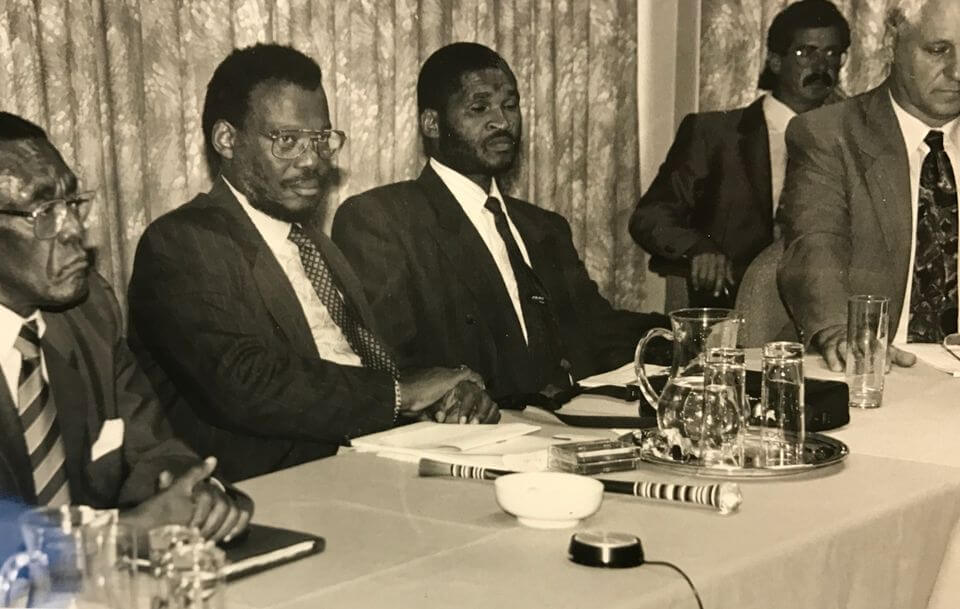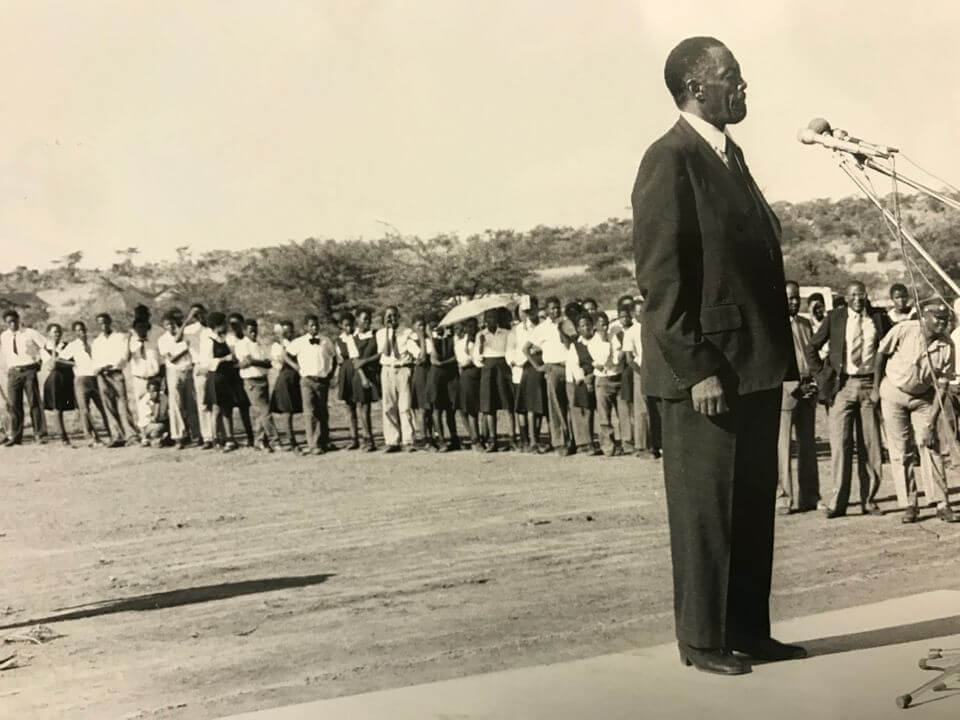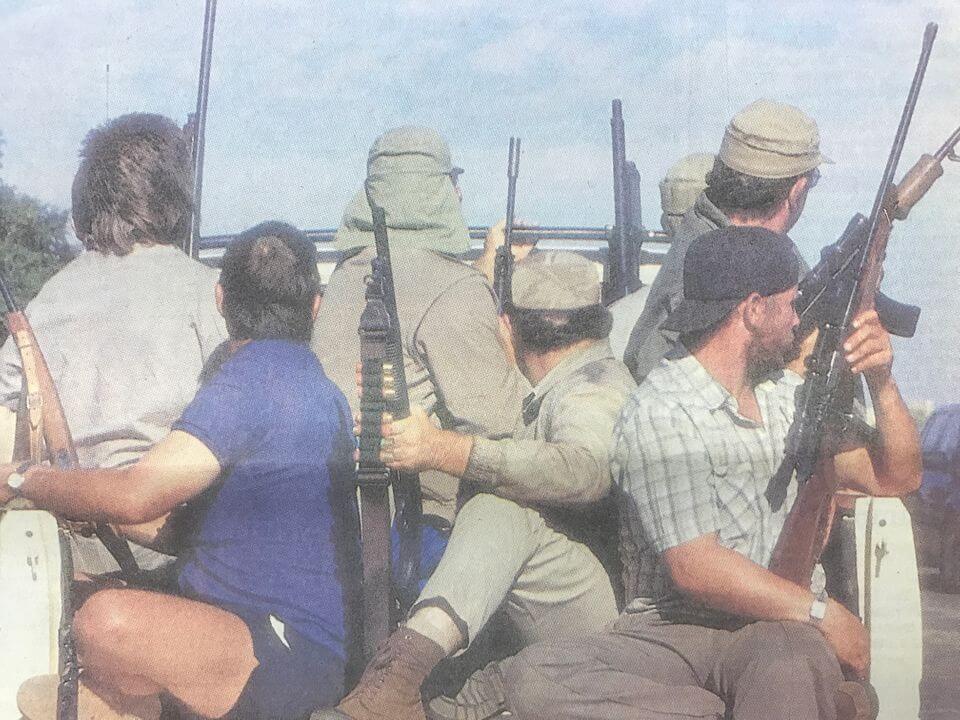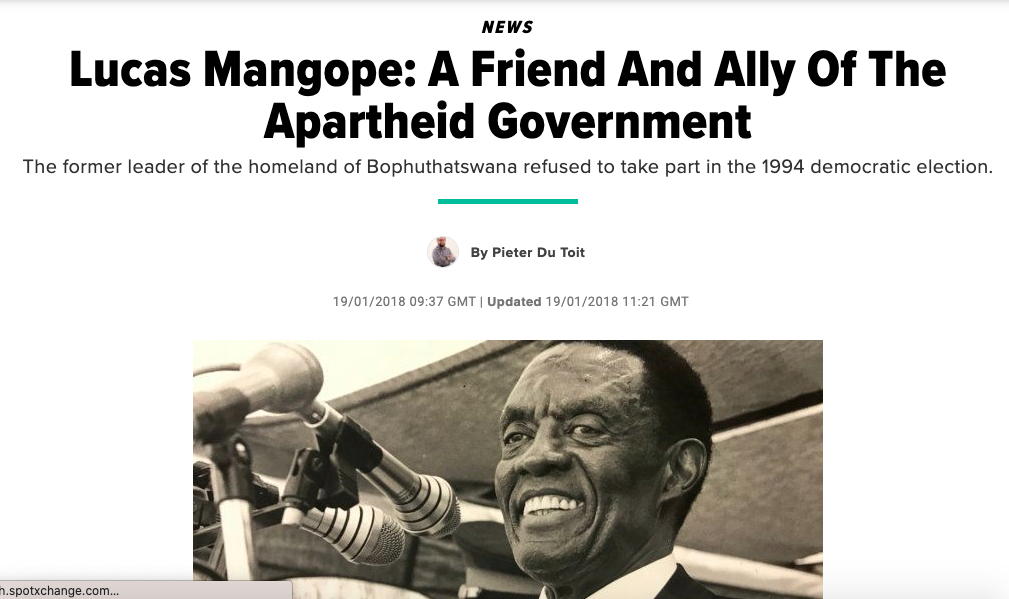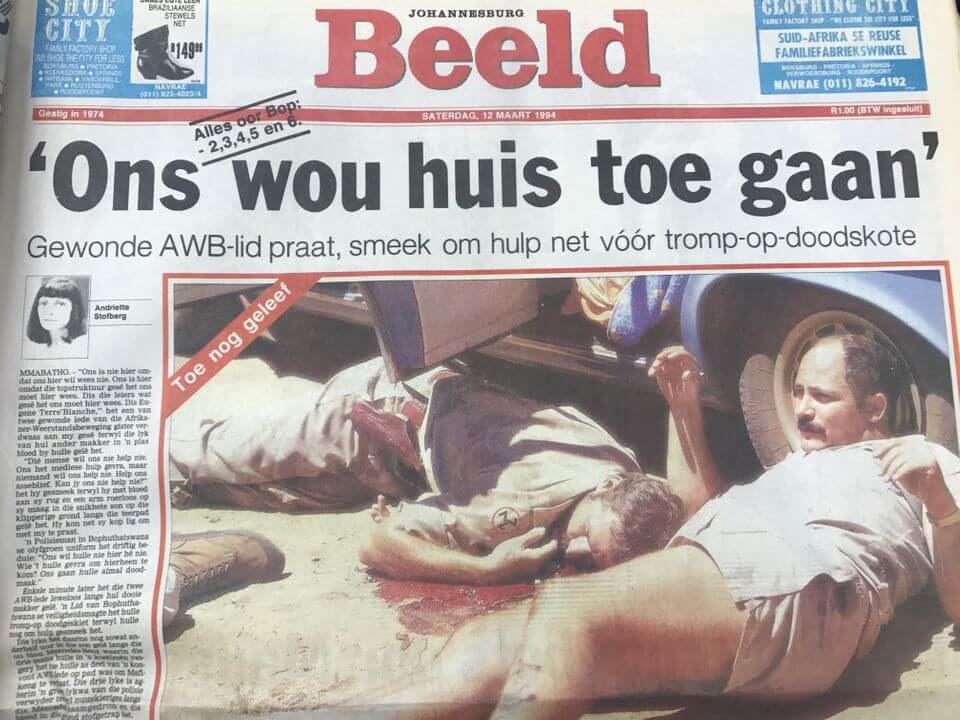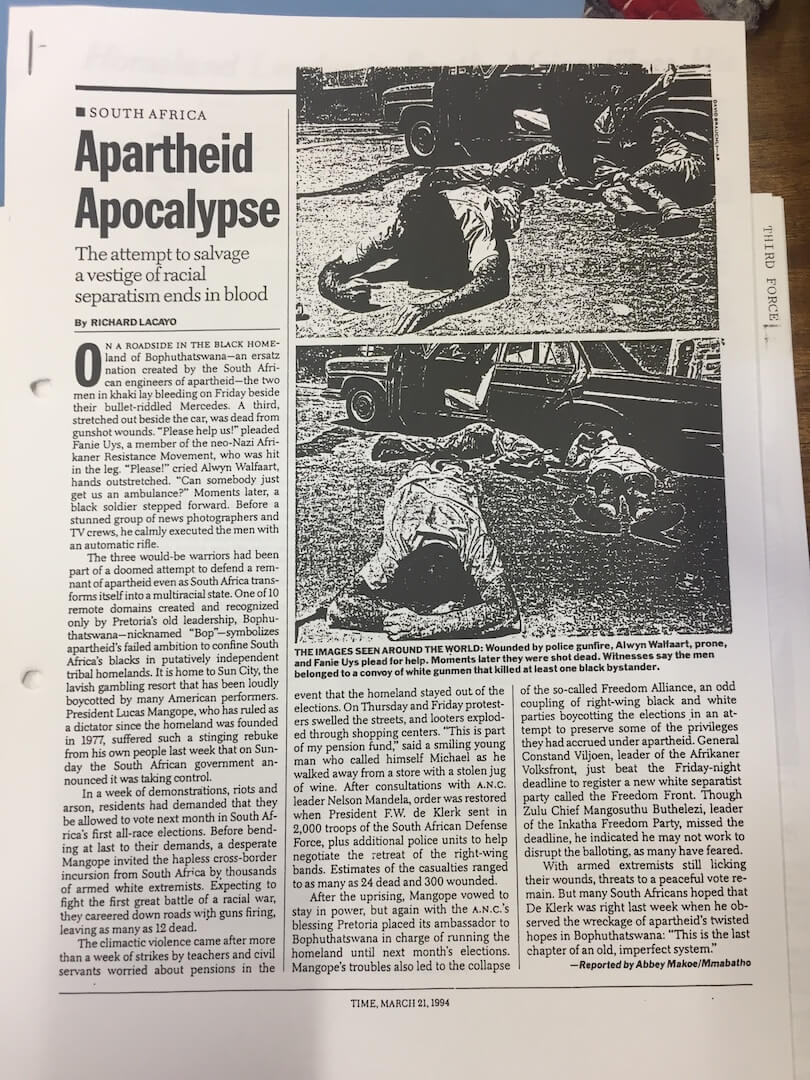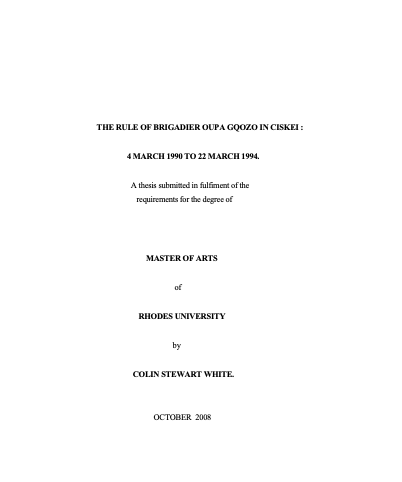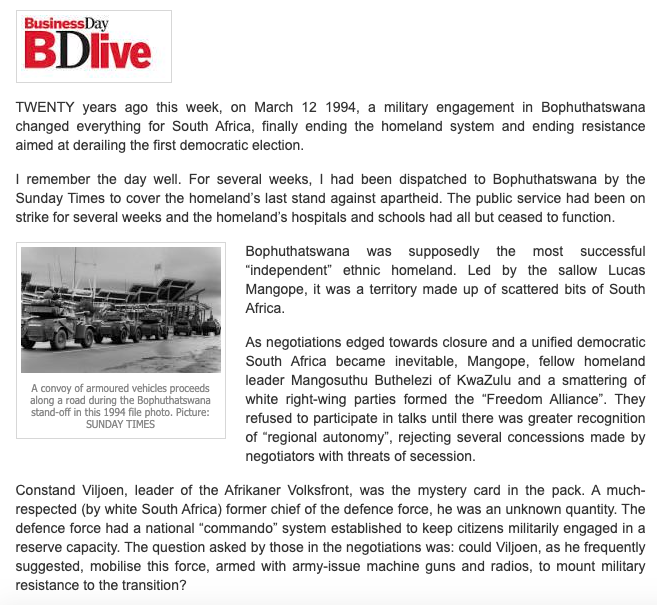The story of the civil war in Bophuthatswana
10 - 12 MARCH 1994

Kevin Carter / Getty Images
The ‘Freedom
Alliance’:
This political coalition was made up of the Inkatha Freedom Party (IFP), the AWB, the AVF, the CP and the Ciskei and Bophuthatswana homeland governments. These parties were united in their rejection of a unitary state and demanded greater power to be afforded to the regional government. They threatened to derail the elections. (The homelands – which had been created by the NP, were due to be absorbed into the country’s nine new provinces on election day. Their administrations would disappear.)
Fears:
The Transitional Executive Council (TEC), the interim body that was ruling South Africa, feared that the absence of any of these major political players would undercut the legitimacy of the election. Various meetings were held to invite them into the elections and to curb more bloodshed. In one such meeting, Judge Johann Kriegler, who was the chair of the Independent Electoral Commission (IEC), flew to Bophuthatswana to plead with Mangope, President of the so-called independent Republic of Bophuthatswana, to allow for free political activity in the homeland.
Refusal to participate
in elections:
On 8 March 1994, Mangope proclaimed that the homeland would not be registering for the elections and that his government would stick to the independence granted to it in 1977 under the apartheid system. (Many hundreds of millions of South African taxpayers’ money had been pumped into keeping the Bophuthatswana government stable and functioning, while Mangope himself was propped up by the Pretoria authorities.) The ANC immediately called for a blockade of the territory.
A mutiny:
The next day, the striking civil servants and people of Bophuthatswana staged violent demonstrations against Mangope. Chaos ensued. Mangope called for military assistance from the AVF headed by General Constand Viljoen because he did not trust the SADF. Before Viljoen could respond, the AWB heeded the call. Fifteen hundred men drove through the night in their farm pickup trucks armed with hunting rifles and pistols and assembled on the border outside the homeland.
Over the next
few days:
Heavy rioting spread to most parts of the homeland, and gunfire could be heard throughout the night. Over 60 people were killed and 300 wounded amidst the burning, looting and fighting. The SADF entered the homeland to ‘restore law and order’. On 11 March, Mangope fled the capital. Thousands of singing residents took to the streets waving ANC and South African Communist Party (SACP) placards.
A shocking
incident:
After the 12 March incident in which a police officer shot dead three AWB members, the end was in sight. (The officer was later granted amnesty at the TRC). Later that day, a delegation led by Minister of Foreign Affairs Pik Botha and including Mac Maharaj, flew to Mmabatho to tell Mangope in his home that:
“It was all over”.
Consequences:
Mandela labelled the revolt, which led to the fall of Mangope’s government, a ‘people’s uprising’. Mandela was greeted with thunderous applause when he told a packed stadium in Bophuthatswana:
“My nation, I greet you”.
The Freedom
Front (FF):
It was after this reckless intervention by the AWB that General Viljoen split from the AVF and decided to sign the MOA on Afrikaner self-determination with the ANC and the NP (described previously). He co-founded the FF and became the leader of the party. His decision to participate in the elections is credited for the prevention of violence and death.
On 22 March:
Civil servants in Ciskei went on strike, demanding full pension pay-outs ahead of the election. With signs of impending mutiny in his police and defence forces, military ruler of the Ciskei, Brigadier Oupa Gqozo, resigned before the end of the day and asked the TEC to appoint an interim administration.
In their own words
“If you want to go to war, I must admit that we cannot stand up to you on the battlefield … It will be a long and bitter struggle; many people will die; and the country may be reduced to ashes. But you must remember two things. You cannot win because of our numbers: you cannot kill us all. And you cannot win because the international community … will rally to our support and they will stand with us.”
-Nelson Mandela, then President of the ANC speaking to General Constand Viljoen and other right-wing generals, 1993
“It seemed like we were moving down the path of a civil war … Those were dark and grim days but in the end we always harboured the hope that it would fall into place somehow … I think we have it in us as South Africans to overcome what may seem to be insurmountable difficulties.”
–Cyril Ramaphosa, then Head of the ANC’s Negotiation Commission
“If we had succeeded in our objective of stabilising Bophuthatswana in twelve hours, the whole picture would’ve been different. We could have declared a Universal Declaration of Independence (UDI) … with a military power base so strong that no one would have been able to do anything about it.”
-Douw Steyn, then leader of the Volkstaat army into Bophuthatswana
“I told my men to go home … I suddenly realised that I would find it very difficult to conduct a complicated military operation under these fluid circumstances without plunging the country into wholescale war … I phoned the Mulder brothers from Mmabatho and said, ‘We are going to register for the elections – today’.”
–Constand Viljoen, former General of the South African Defence Force, on the brink of becoming leader of the Freedom Front
“Fanie and I flew to Bophuthatswana with Pik Botha, the Minister of Foreign Affairs. Botha had to inform Mangope that the South African government – Mangope’s former ally – no longer recognised him as the leader of Bophuthatswana. Mangope begged to stay on. I told Mangope that, ‘Your admin has collapsed. There is no effective control, no hospitals, TV, radio, functioning civil service; security forces are divided, arms are being stolen and orders defied. The TEC has been petitioned by 53 senior civil servants from your territory who want reincorporation, free political activity, secure salaries and pensions, and security force control’.”
-Mac Maharaj, then ANC negotiator at the MPNP
“It turns out now that 40 000 armed white soldiers had been on top alert for a command from Constand Viljoen to intervene on the side of Mangope … So, if the attention-seeking AWB hadn’t impetuously gone in like that, who knows what might have happened. In a weird paradoxical way, the AWB did South Africa a favour with their clumsy intervention.”
–Albie Sachs, then member of the ANC’s National Executive Committee
